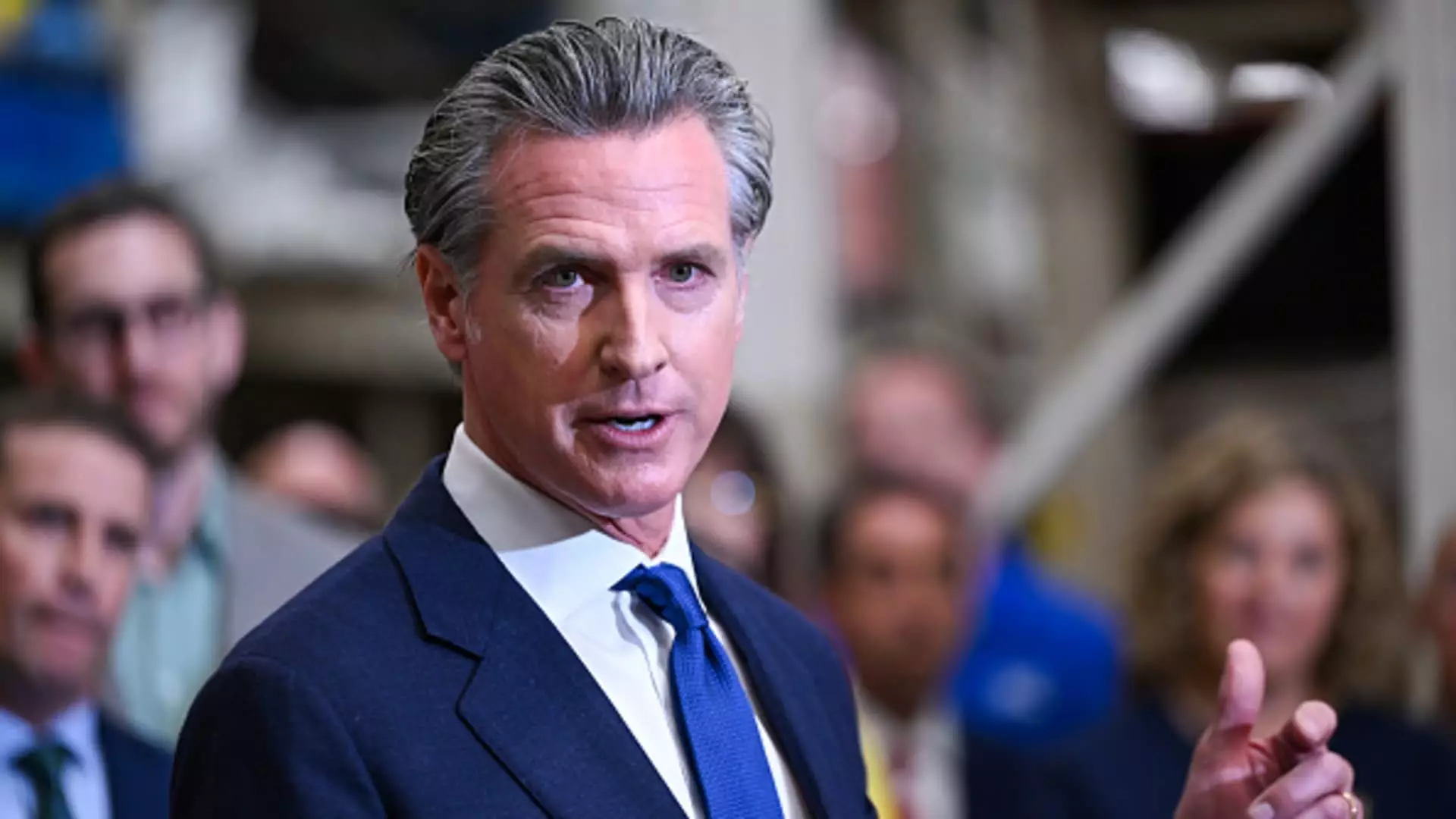As the political landscape shifts with the impending Trump administration, California Governor Gavin Newsom is proactively steering the state’s legislative agenda to counteract potential federal overreach. Initiating a special legislative session, Newsom aims to equip California with legal resources to defend crucial policy areas, particularly reproductive rights and environmental protections, that could be threatened under federal policies. This legislative move is grounded in the recognition that California, as the most populous state, holds considerable influence and responsibility in the broader national context.
In an effort to build an effective defense against possible harmful federal proposals, Newsom is advocating for a robust new litigation fund of up to $25 million. This financial resource will be allocated to the California Department of Justice and various state agencies, empowering them to mount legal challenges and administrative actions as necessary. This strategic decision underscores the seriousness with which Newsom views the risks posed by the new administration, epitomizing a proactive rather than reactive approach to governance.
The urgency of this fund is heightened by the historical context of California’s tense relationship with the Trump administration during his first term. Between 2017 and 2021, California’s DOJ engaged in 122 lawsuits against federal actions, winning several crucial cases that safeguarded the state’s interests. These legal battles not only resulted in significant financial reimbursements but also helped to preserve billions in federal funding critical to various state programs.
Newsom’s concerns are mirrored by sentiments from Trump’s team. Karoline Leavitt, a spokesperson for the upcoming administration, has stated that despite Newsom’s efforts to “Trump-proof California,” the new administration remains resolute in its agenda. The contentious dynamic highlights the stark political divides that characterize the national landscape, where California, often viewed as a bastion of liberal policies, is bracing itself for a new era of conservative governance.
Furthermore, Leavitt pointed to the significant support Trump garnered in California, challenging the narrative that the state is uniformly progressive. As voters expressed dissatisfaction with the state’s existing policies—such as high taxes and housing costs—this context adds complexity to the political equation, revealing an electorate that is far from monolithic.
California’s preparation isn’t solely about resisting federal actions; it also involves maintaining economic stability. Recent moves reveal that Newsom is ready to address significant policies that pertain to economic growth, including the potential elimination of federal tax credits for electric vehicles. The proposed legislation to restart the state’s Zero Emission Vehicle rebate program illustrates this commitment. This not only affirms California’s leadership in the electric vehicle industry but also reflects the ongoing negotiations with key stakeholders, including influential companies like Tesla.
The implications of these legal and economic maneuvers extend beyond environmental policy. The interconnection between state and federal governance raises questions about how California can sustain its progressive initiatives while navigating the challenges posed by a conservative federal government. The fragility of such initiatives can leave vulnerable populations at risk of losing protections and benefits.
California’s biopolitical dynamic is also changing at the local level, showcasing a trend towards conservatism in key political arenas. The election outcomes, including the ascent of conservative district attorneys and the successful recall of progressive leaders, signal growing discontent with the status quo. These shifts point to a deeper introspection among California voters, with economic concerns frequently cited as overriding social issues.
Polling data from the Public Policy Institute of California reinforces this sentiment, indicating the electorate’s prioritization of economic stability over social justice initiatives. This shift not only affects state governance but could also have lasting repercussions on national politics as California navigates its position as a progressivist stronghold in a shifting political tide.
As Governor Newsom leads California into this legislative session with the intent to safeguard the state’s interests against anticipated federal overreach, the complexities of local and national politics continue to intertwine. The creation of a litigation fund, alongside efforts to boost economic policy resilience, exemplifies a multifaceted approach to governance. While the outcomes remain uncertain, California’s immediate response serves as a litmus test, reflecting broader national sentiments that could influence the trajectory of democratic principles in an increasingly polarized political environment. Ultimately, this moment underscores California’s pivotal role in the national dialogue surrounding rights, freedoms, and governance, reaffirming its status as a crucial player in shaping America’s political future.



Leave a Reply